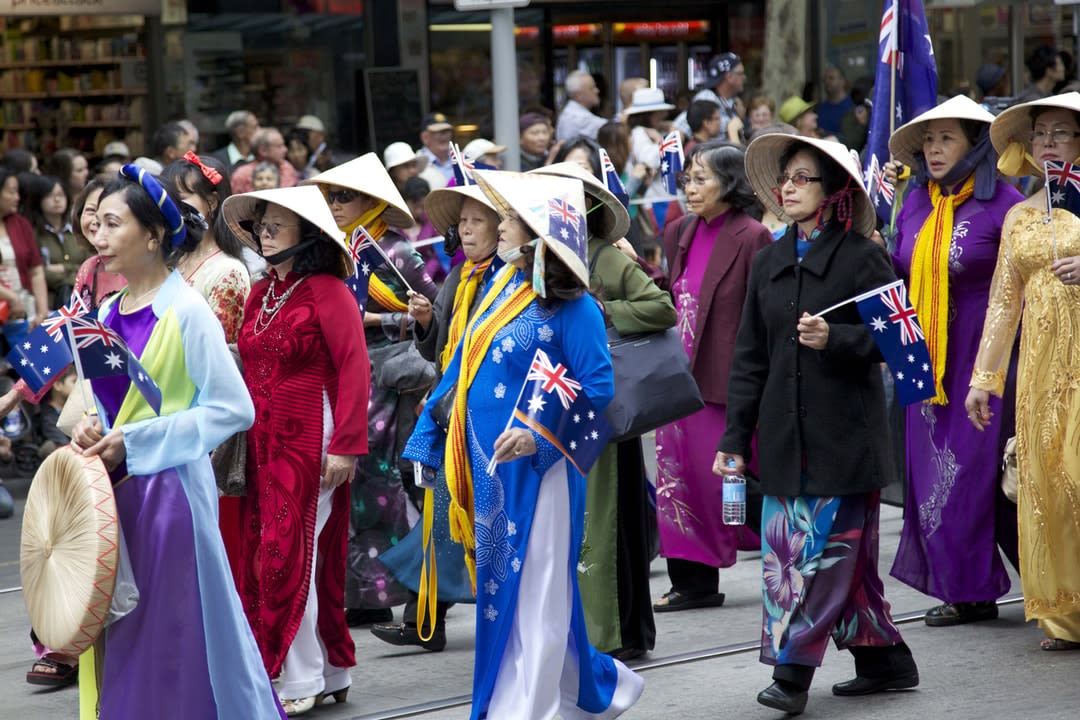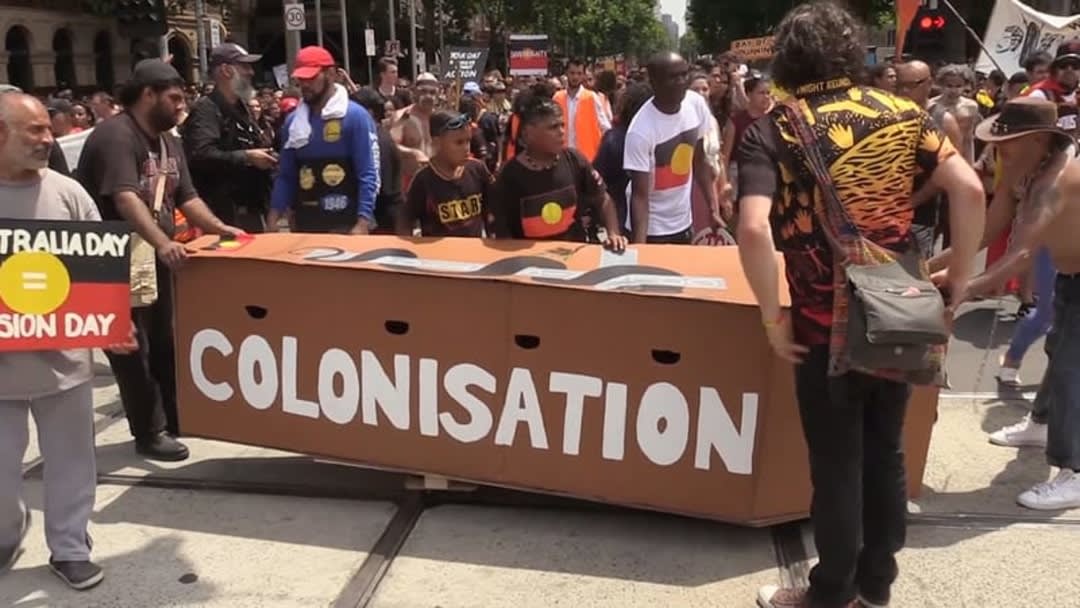January 26, Australia Day. Depending on who you speak with, it is either a day of national celebration, a day of invasion and mourning, a day of survival, a day of shame, or for some simply a day off and excuse for a barbecue.
One thing is certain, what is meant to be a day that brings everyone together to reflect on our national identity, draws us down a dark alley of division.
It is, says Monash University Vice-Chancellor Margaret Gardner, a problem that needs to be addressed.
"Australia Day is a comparatively recent construct and is contentious because of course it celebrates when Europeans settled Australia and that, not surprisingly, represents displacement and invasion for many Indigenous Australians," she says.

"I think we have an issue there that needs to be solved because the day means something to Indigenous peoples which causes great sadness and regret at its minimum. We can't choose a day to be symbolically about who we are as a nation unless we're all reasonably happy about what those symbols are.
"So I think we need to find another symbolic day that speaks to something that we collectively agree is important to all of us, one that speaks to all the threads of who we are; from the 60,000 years of Indigenous history, through European settlement and through to the many peoples who have come here and made Australia what it is today."
We need our country, our leaders of the country, our government and our politicians to actually take us on a journey that takes us through this into a place of healing.
For Monash Pro Vice-Chancellor of Indigenous Issues Jacinta Elston, it is the celebratory manner in which 26 January is recalled nationally that many Aboriginal and Torres Strait Islanders find offensive and with which they struggle.
"We as Aboriginal and Torres Strait Islander people, we actually want to celebrate being Australian, we want to celebrate Australia Day, but that's not the right day for us to do it," she says.
"For us, January 26, 1788 was the beginning of a process of invasion. When Captain Arthur Phillip placed the British flag on Gadigal land that morning, that represents our land being stolen from us."

The solution, though, she says, isn't as simple as changing the date on which we celebrate Australia Day.
"I don't think that, by itself, will do it," she says. "I think that January 26 still needs to be acknowledged, but as a different type of day of significance in Australia, one of remembrance and recognition.
"The tone that is set around Anzac Day, that context of remembrance, remembering the legacy of those who fought in the wars, that's exactly the same type of tone that many of us in the Aboriginal and Torres Strait Islander community would like to set for January 26."
Until these things happen, she says, there will be ongoing debate and ongoing tension between Indigenous and non-Indigenous Australians about what the date represents.
"Lots of people say to me: 'Why don't Aboriginal people just get over these things'? Well, why doesn't non-Indigenous Australia just get over it and actually start to do the thing that they can do, which is acknowledge us and help us all move on together.
"Why do we have to be the ones who get over it? Why can't we get over it together?
"Where we kind of are at the moment is just sort of treading water in a place of pain," says Professor Elston. "We need our country, our leaders of the country, our government and our politicians to actually take us on a journey that takes us through this into a place of healing.
Watch: The Australian identity debate (Episode 11: A Different Lens series)
Featuring
-
Brian Martin
Associate Dean (Indigenous), MADA
Brian is Monash University Art Design & Architecture's (MADA) inaugural Associate Dean, Indigenous. Brian is a descendant of the Muruwari, Bundjalung and Kamilaroi peoples. He has been a practising artist for twenty-three years and has exhibited both nationally and internationally specifically in the media of painting and drawing.
-
Alistair Thomson
Professor of History, School of Philosophical, Historical and International Studies
Alistair's research and teaching explores the ways in which different kinds of life-story evidence can illuminate the past and its meanings in the present lives of individuals and society. His current work explores the opportunities and challenges of digital (oral) history, and the history of fatherhood in 20th-century Australia. from 2011-15, Alistair led the Australian Generations oral history project, an ARC Linkage collaboration between Monash and La Trobe university historians, ABC Radio National and the National Library of Australia.
-
Margaret Gardner AC
President and Vice-Chancellor, Monash University
Professor Margaret Gardner AC is the President and Vice-Chancellor of Monash University and the founder of the Monash Commission. She's a social scientist with a particular interest in industrial relations and human resource management. She previously served in executive positions with the University of Queensland and Griffith University. Immediately prior to coming to Monash, she was the Vice-Chancellor and President of Melbourne's RMIT University for nine years.
-
Jacinta Elston
Pro Vice-Chancellor (Indigenous) & Head, William Cooper Institute
Professor Jacinta Elston, an Aboriginal woman from Townsville in North Queensland is the inaugural Pro Vice-Chancellor (Indigenous) at Monash University. She is the current Chair of Cancer Australia's Leadership Group on Aboriginal and Torres Strait Islander Cancer Control. Her career has focused on Indigenous health and Indigenous higher education, and she has contributed many years of service on state and federal ministerial appointments, and the boards of Aboriginal Community Controlled Organisations.
-
Luke Beck
Associate Professor, Law Resources
Luke is a constitutional law scholar in the field of separation of religion and government and religious freedom under the Australian Constitution. The principal focus of his research is on developing a deeper and more sophisticated understanding of section 116 of the Australian Constitution in terms of its history and underlying purposes, its relationship and interaction with broader Australian constitutional culture and how it might be best interpreted and applied.
-
Graeme Davison AO
Emeritus Sir John Monash Distinguished Professor
Graeme is a former President of the Australian Historical Association, Chairman of the Heritage Council of Victoria, a Fellow of the Australian Academies of Social Sciences and Humanities, and a prominent adviser and commentator on museums, heritage and urban policy. In 2011 he was made an Officer in the Order of Australia.






